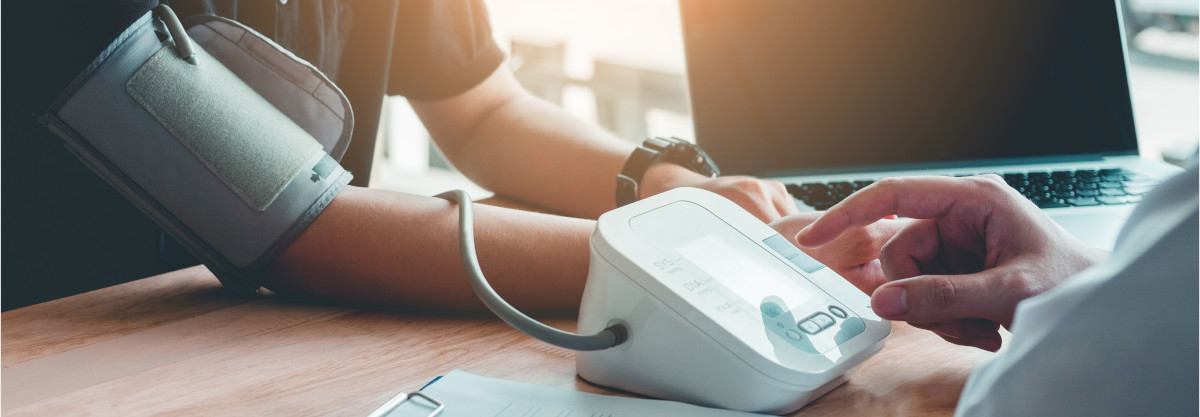
20 May Managing Hypertension: Tips, Insights, and Strategies for a Healthier Heart
Managing Hypertension: Tips, Insights, and Strategies for a Healthier Heart
By Island Hospital | May 20, 2025 8:53:17 PM
Hypertension, also known as high blood pressure, is a common medical condition that affects millions of people worldwide.
It occurs when the force of blood against the walls of the arteries is consistently too high, putting a strain on the heart and blood vessels.
This blog post will provide an overview of hypertension, including its causes, symptoms, complications, and how to manage and prevent it.
Understanding Hypertension
Hypertension can be caused by several factors, including genetics, lifestyle habits, and underlying medical conditions such as kidney disease or diabetes.
Risk factors for hypertension include age, gender, family history, obesity, and stress. Symptoms of hypertension may not be noticeable at first, but over time, it can lead to:
- Headaches
- Dizziness
- Blurred vision
- Shortness of breath
Diagnosis of hypertension is usually done by measuring blood pressure using a sphygmomanometer, which is a device that measures the pressure in your arteries.
Monitoring Your Blood Pressure Measurement
Blood pressure measurement is a common and important medical test that is used to evaluate a person’s cardiovascular health.
It involves measuring the force of blood against the walls of the arteries, which is expressed as two numbers – systolic and diastolic blood pressure.
- Systolic blood pressure is the pressure exerted when the heart contracts.
- Diastolic blood pressure is the pressure in the arteries when the heart is at rest.
A normal blood pressure reading is usually around 120/80 mmHg, but this can vary based on age, sex, and other factors.
How to Measure Your Blood Pressure at Home
If you have been diagnosed with hypertension, your doctor may recommend that you monitor your blood pressure at home.
This can help you to keep track of your blood pressure and make adjustments to your lifestyle and medication as needed.
To measure your blood pressure at home, you will need a blood pressure monitor. There are two types of blood pressure monitors – manual and automatic.
- Manual blood pressure monitors require you to use a stethoscope to listen to your heartbeat and manually inflate and deflate the cuff around your arm.
- Automatic blood pressure monitors are easier to use and can provide a more accurate reading.
To measure your blood pressure at home with an automatic blood pressure monitor, you should follow these instructions:
- Sit in a comfortable position with your feet flat on the floor and your back supported.
- Rest your arm on a table or other flat surface, with your palm facing up.
- Apply the cuff to your upper arm, following the manufacturer’s instructions.
- Press the button to start the monitor.
- Remain still and quiet while the monitor takes your blood pressure reading.
- Record your blood pressure reading, along with the date and time.
- Repeat the measurement two more times, with a minute or two between readings, and record the results.
Managing Hypertension
Managing hypertension involves a combination of lifestyle changes and medications.
- Lifestyle changes that can help include eating a healthy diet, getting regular exercise, reducing stress, and limiting alcohol consumption. In some cases, weight loss may also be necessary.
- Medications that may be prescribed to manage hypertension include diuretics, beta-blockers, ACE inhibitors, and calcium channel blockers.
It’s important to discuss with your healthcare provider to find the best treatment plan for you and to manage your medication properly.
Complications of Hypertension
If left untreated, hypertension can lead to serious health complications such as:
- Stroke
- Heart attack
- Kidney disease
- Vision loss
Hypertension puts a strain on the heart and blood vessels, making them work harder than they should. Over time, this can damage the organs and lead to serious health problems.
That’s why it’s important to manage hypertension as soon as possible.
Prevention
The good news is that hypertension can managed and prevented in many cases by:
- Making healthy lifestyle choices, such as eating a balanced diet, getting regular exercise, managing stress, and limiting alcohol consumption.
- Monitoring your blood pressure regularly, especially if you have a family history of hypertension or other risk factors.
- Working with your healthcare provider to develop an effective treatment plan.
Looking for more prevention tips? Read our comprehensive guide on how to reduce high blood pressure.
Take Charge of Your Heart Health Today
By taking control of your health and managing hypertension properly, you can reduce your risk of complications and lead a healthy, happy life. At Island Hospital, we understand the importance of cardiovascular care.
Our Cardiology Department and Heart Centre are equipped with advanced technology and staffed by a dedicated team of professional cardiologists, nurses, and support staff.
We offer a wide range of services, including diagnosis, personalised treatment plans, and ongoing support to help you manage your blood pressure effectively.
We’re proud to be recognised both locally and globally, including:
- Finalist for Malaysia’s Flagship Medical Tourism Hospital Programme
- Featured on Newsweek’s lists of World’s Best Hospitals 2024
- Ranked among the Best Specialized Hospitals Asia Pacific 2024 (Cardiology)
If you or a loved one has concerns about blood pressure or hypertension, don’t wait — schedule a consultation with our experienced healthcare team today.
Don’t Wait Until It’s Too Late – Get a Screening That Covers All The Bases

We’re offering our comprehensive Executive Health Screening Packageat only RM760 – giving you a complete head-to-toe health assessment for peace of mind.
Our package features vital health screenings, including Cardiovascular Assessment, Full Blood Picture, Radiological Screening, Diabetes Screening, Kidney Function Test, and much more.
What’s Included in Your Screening Experience:
✔ Physical examination
✔ Complete medical report
✔ Consultation by Health Screening Physician/Specialist
✔ Choice of light refreshments
✔ Exclusive Island Hospital woven bag






